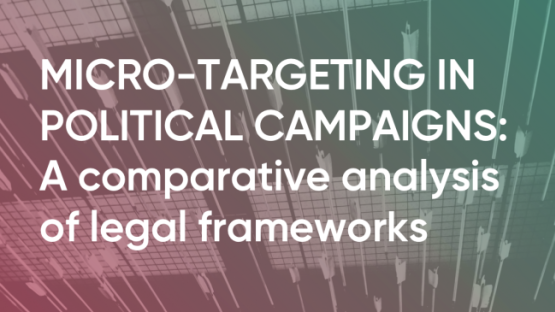
Photo by Possessed Photography on Unsplash
A comparative research of legal frameworks governing political micro-targeting in Canada, Brazil, France, Italy, Spain and the UK.

Photo by Possessed Photography on Unsplash
This paper examines the various legal frameworks governing micro-targeting in political campaigns in six states: Canada, Brazil, France, Italy, Spain and the UK. It aims to assess national practices as well as point out gaps in their respective frameworks. The paper commences by examining how micro-targeting is defined and thereafter examines the legal provisions applicable to micro-targeting activities.
To do this in an accessible way, the paper follows and analyses the series of activities that make up micro-targeting: collecting of personal data, using the data for profiling, and transmitting personalised communications to individual voters.
This report was compiled under the direction of Dr Paolo Cavaliere, Lecturer in Digital Media and IT Law, University of Edinburgh Law School, in collaboration with Privacy International.
Key findings:
Ads are "targeted" when they are aimed at an audience with specific traits based on the product or service that is being advertised.
Ads are "personalised" when they are targeted to a specific person based on their perceived or inferred interests or characteristics. These interests and characteristics are themselves derived from previous online activity, such as visited websites or apps used.